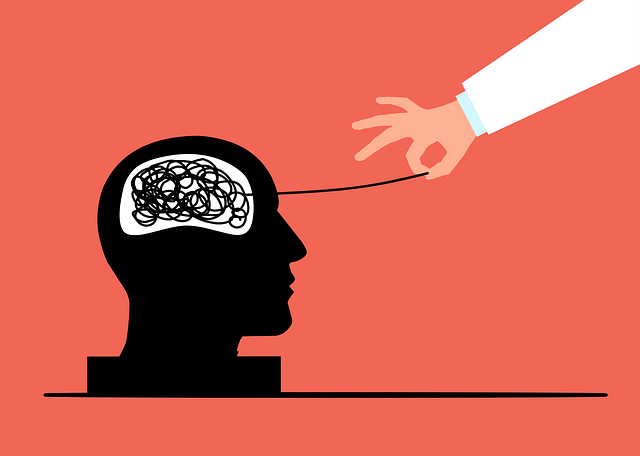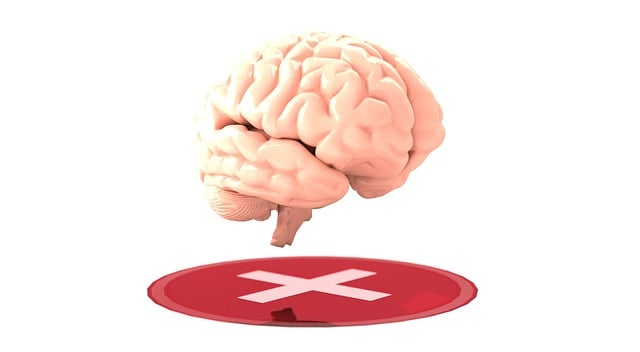Nutritional therapy is a holistic approach to mental well-being, emphasizing the mind-body connection. A balanced diet, rich in essential nutrients and whole foods, enhances brain function, stabilizes mood, reduces anxiety and depression symptoms, and fosters improved cognitive function. This personalized approach considers individual needs, addressing nutritional deficiencies for effective healing. The gut-brain axis further underscores the importance of gut health in mental well-being, with probiotics playing a crucial role. By prioritizing nutritious food choices, individuals can take charge of their mental health holistically, alongside traditional therapeutic practices.
“Unveiling the intricate mind-body connection is a pivotal step towards embracing holistic mental health. This article delves into the transformative power of nutritional therapy as a powerful tool for nurturing your mind and brain. We explore how specific nutrients, dietary patterns, and even gut health can significantly impact mood regulation and overall mental wellbeing.
Through a comprehensive guide, you’ll discover strategies to customize nutritional approaches, incorporating whole foods and exploring probiotics’ role in managing stress and anxiety, offering hope and practical solutions for enhanced holistic mental health.”
Understanding the Mind-Body Connection: Unveiling Holistic Mental Health

The mind-body connection is a profound and often underestimated aspect of overall health, especially in the context of mental well-being. Nutritional therapy recognizes that what we eat doesn’t just fuel our bodies; it also profoundly impacts our minds. A balanced diet rich in whole foods can support brain function, regulate mood, and reduce symptoms of anxiety and depression. By understanding this intricate relationship, we shift from treating mental health solely with medication or therapy to a more holistic approach that nurtures both the mind and body.
Holistic mental health considers the interplay between nutrition, physical activity, stress management, and social connections. When these elements are in harmony, individuals can experience improved cognitive function, heightened resilience to stress, and a deeper sense of well-being. Nutritional therapy becomes a powerful tool for empowering individuals to take charge of their mental health by making conscious choices about what they put on their plates.
The Role of Nutrition in Brain Function and Mood Regulation

Nutrition plays a crucial role in brain function and mood regulation, two key components of holistic mental health. The food we consume provides the essential building blocks for neurotransmitters, hormones, and other brain chemicals that influence our mood, cognition, and overall well-being. Deficiencies in certain nutrients can lead to imbalances in these brain chemicals, contributing to conditions like depression and anxiety. For instance, omega-3 fatty acids, found in foods like fish and nuts, are vital for maintaining the structure and function of cell membranes in the brain, supporting effective communication between nerve cells.
Moreover, a balanced diet rich in vitamins, minerals, and antioxidants can help reduce inflammation in the brain, often associated with mental health disorders. Holistic mental health approaches increasingly recognize the interconnectedness of nutrition and mental well-being, emphasizing that what we eat can significantly impact our ability to manage stress, maintain focus, and regulate emotions. Thus, a nutritious diet is not just beneficial for physical health but also plays a pivotal role in nurturing a healthy mind.
Essential Nutrients for Optimal Mental Wellbeing

Maintaining optimal mental wellbeing involves a multifaceted approach, and one crucial aspect often overlooked is the role of nutrition. Holistic mental health advocates for nurturing both the mind and body through various means, including dietary choices. Certain essential nutrients play pivotal roles in brain function and overall psychological resilience.
For instance, omega-3 fatty acids, found abundantly in fish like salmon and mackerel, are renowned for their impact on cognitive health and mood regulation. Similarly, vitamins B6, B9 (folate), and B12 are instrumental in producing neurotransmitters that govern mood, memory, and overall neural communication. Additionally, magnesium, often termed the ‘relaxation mineral,’ aids in stress reduction and sleep quality, both of which are integral to mental equilibrium. A balanced diet rich in these nutrients can significantly contribute to a robust and resilient mind, complementing traditional therapeutic practices for enhanced holistic mental health.
Dietary Patterns and Their Impact on Mental Health Disorders

Diet plays a significant role in our overall well-being, and its impact on mental health disorders is an emerging area of interest in holistic mental health practices. The food we consume can influence neurotransmitter production and brain function, which are pivotal for maintaining emotional balance. For instance, diets high in processed foods and refined sugars have been linked to increased anxiety and depression symptoms. On the contrary, a diet rich in whole grains, fruits, vegetables, and healthy fats may promote better mental health outcomes.
Certain dietary patterns, such as the Mediterranean diet, emphasize the consumption of plant-based foods, healthy fats, and lean proteins, which have been associated with reduced risks of various mental health disorders. These diets not only provide essential nutrients but also offer anti-inflammatory benefits, contributing to a healthier brain and improved mood regulation. Understanding these connections can empower individuals to make informed dietary choices as part of a holistic approach to managing their mental health.
Customizing Nutritional Therapy: Individualized Approaches

Nutritional therapy for mental health is a rapidly growing field that recognizes the deep connection between what we eat and how we feel. Customizing nutritional therapy means tailoring dietary interventions to each individual’s unique needs, taking into account their specific mental health conditions, medical history, lifestyle, and preferences. There’s no one-size-fits-all approach when it comes to holistic mental health; a personalized diet plan is key to achieving optimal well-being.
For instance, someone struggling with anxiety might benefit from an anti-inflammatory diet rich in omega-3 fatty acids and probiotics, while another individual dealing with depression could find relief through a balanced diet focused on stabilizing blood sugar levels. An individualized approach allows for addressing underlying nutritional deficiencies that may be contributing to mental health issues, fostering a more comprehensive and effective healing process.
Incorporating Whole Foods for Enhanced Mental Clarity and Energy

In the pursuit of holistic mental health, incorporating whole foods into your diet plays a pivotal role in enhancing mental clarity and boosting energy levels. These unprocessed, nutrient-rich foods are packed with essential vitamins, minerals, and antioxidants that support brain function and overall well-being. Unlike refined or processed options, whole grains, lean proteins, healthy fats, fruits, and vegetables provide sustained energy release, stabilizing blood sugar levels and promoting a consistent mood throughout the day.
For instance, complex carbohydrates found in whole grains like quinoa and brown rice increase serotonin production, often referred to as the ‘feel-good’ hormone, contributing to improved mood and reduced anxiety. Omega-3 fatty acids abundant in fatty fish, nuts, and seeds are known to play a crucial role in brain health, potentially alleviating symptoms of depression and improving cognitive function. By prioritizing whole foods, individuals can create a nutritious foundation for their mental health journey, complementing other therapeutic practices for a more holistic approach.
Exploring the Gut-Brain Axis: Probiotics and Mental Health

The gut-brain axis, a fascinating connection between our gastrointestinal system and central nervous system, has become a prominent area of interest in understanding holistic mental health. Research suggests that the health of our gut microbiota can significantly influence brain function and emotional well-being. Probiotics, beneficial bacteria that reside in our intestines, play a crucial role in this relationship. These microorganisms not only aid in digestion but also produce neurotransmitters and neuroactive compounds that can cross the blood-brain barrier, affecting mood and cognitive functions.
Studies have explored the potential benefits of probiotic supplementation for individuals with mental health disorders. Some findings suggest that certain strains of probiotics may help reduce symptoms of anxiety and depression by modulating inflammation, improving gut permeability, and enhancing the production of brain-derived neurotrophic factor (BDNF), a protein associated with mood regulation. Incorporating probiotic-rich foods like yogurt, kefir, and fermented vegetables into one’s diet could be a simple yet effective way to support both gut and mental health in a holistic manner.
Holistic Strategies for Managing Stress and Anxiety through Nutrition

In the realm of holistic mental health, nutrition plays a pivotal role in managing stress and anxiety. A well-balanced diet rich in whole foods like fruits, vegetables, lean proteins, and healthy fats can significantly impact brain function and emotional well-being. These foods are packed with essential vitamins, minerals, and antioxidants that support neurotransmitter production, which are chemical messengers in the brain responsible for regulating mood and stress responses. For instance, omega-3 fatty acids found in fish like salmon have been linked to reduced anxiety and improved cognitive function.
Holistic strategies for managing stress and anxiety through nutrition also involve mindful eating practices. Incorporating mindfulness during meals can help individuals become more attuned to their bodies’ hunger cues, promoting a healthier relationship with food. Additionally, reducing the intake of processed foods and sugars can stabilize energy levels and temper mood swings. Herbs and spices like turmeric and ginger have been traditionally used for their anti-inflammatory properties, which may also contribute to alleviating stress and anxiety symptoms.
Case Studies: Success Stories of Nutritional Therapy in Mental Healthcare

In the realm of holistic mental health, nutritional therapy has emerged as a powerful tool, offering success stories that are nothing short of remarkable. Case studies have consistently shown that tailoring dietary approaches to individual needs can significantly impact mental well-being. For instance, research has highlighted the positive effects of certain nutrients like omega-3 fatty acids and vitamin D in managing depression and anxiety disorders. These essential compounds play a crucial role in brain function and mood regulation.
One such case involves a patient struggling with severe anxiety and stress-related disorders. Through nutritional therapy, they were guided to adopt a diet rich in whole foods, including increased intake of leafy greens and fatty fish. Within a few months, the individual reported reduced anxiety levels and improved sleep quality. Similar success stories are not uncommon, as many individuals have found relief from symptoms of depression, bipolar disorder, and even ADHD through targeted dietary interventions. These examples illustrate how nutritional therapy can be a game-changer in holistic mental health care.
